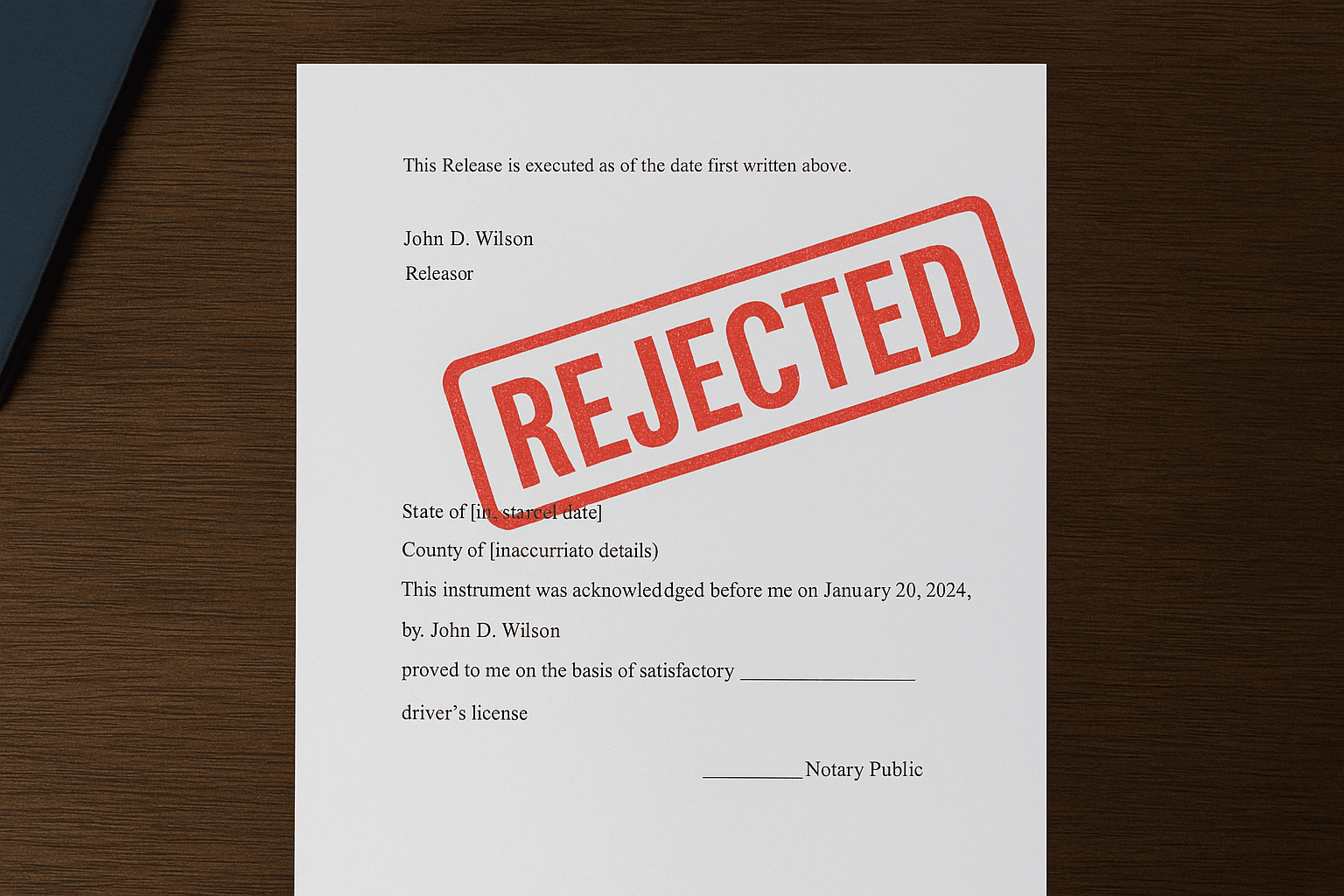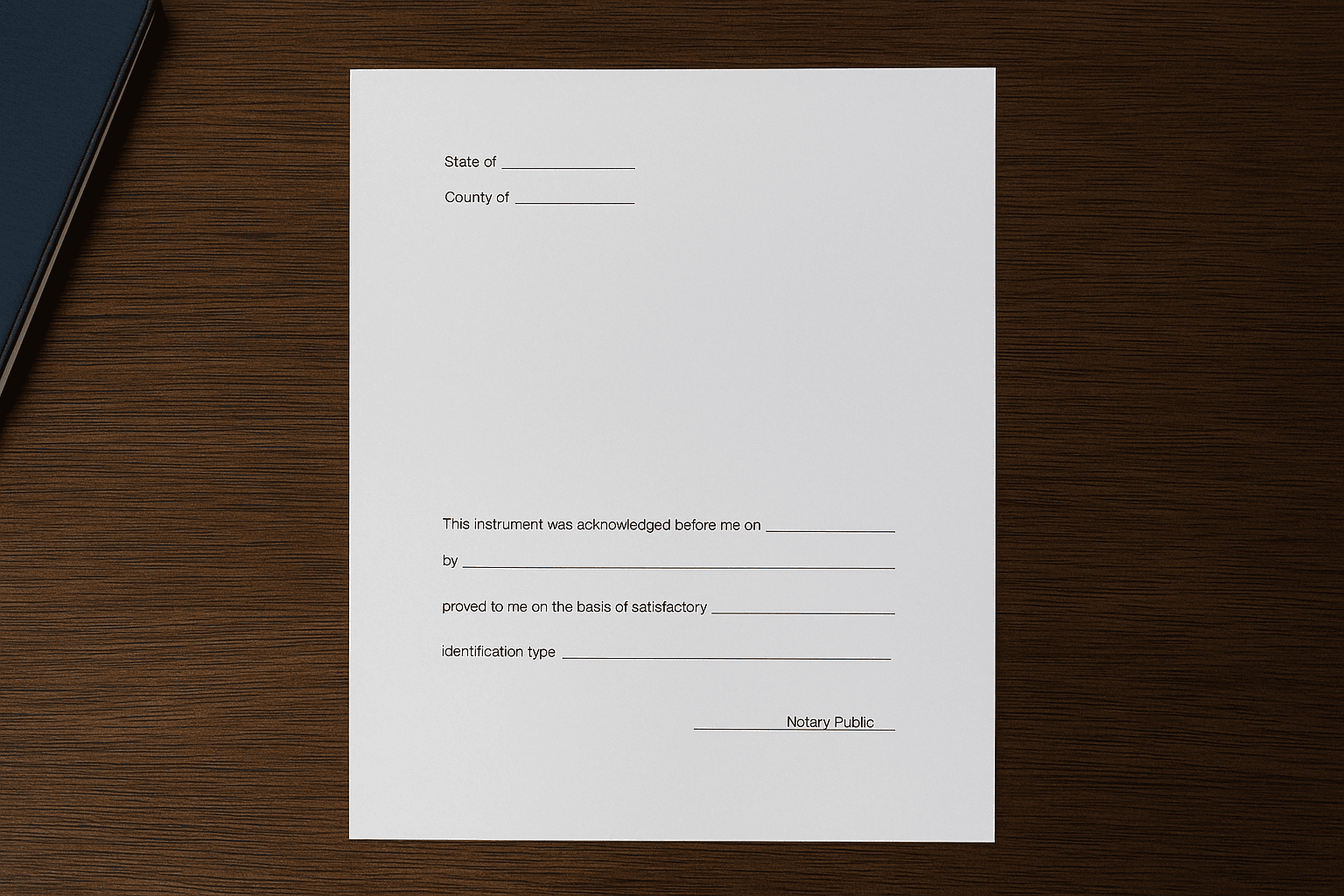Lenders & Title Companies: Please Don’t Pre-Fill the Notarial Section
In the world of real estate closings, mortgage signings, and legal document preparation, collaboration between notaries, lenders, and title companies is essential. However, one ongoing issue that continues to create confusion, delays, and compliance risks is pre-filled notarial sections on documents.
Let’s talk about why this seemingly helpful action is, in fact, problematic — and how you can support your notary partners in maintaining integrity and compliance.
🔍 What Is the Notarial Block?
The notarial certificate or block is the section of a document where a notary public records the facts of the notarization. This includes:
Where the notarization took place (venue)
When it occurred (date)
Who appeared before the notary (signer's name)
What type of notarial act was performed (acknowledgment, oath, affirmation, etc.)
What form of ID was presented to verify identity
Each of these details must be accurately and truthfully completed by the notary at the time of signing — not beforehand.

❌ Why Pre-Filling the Notarial Section Causes Problems
Incorrect Dates
Documents are often prepared in advance. Pre-printing a notarization date that doesn’t match the actual day the signer appears creates a legal discrepancy.
Incorrect ID Information
The notarial block might list a driver’s license, but the signer presents a passport or another valid ID. This mismatch can lead to improper records or rejected notarizations.
Not Enough Space for Corrections
When notarial blocks are pre-filled and incorrect, the notary is forced to either:
Cram corrections into tight spaces, creating messy or illegible entries
Or use a loose certificate, which although acceptable, introduces the risk of it becoming separated from the document
Limits the Notary’s Discretion
Some pre-filled certificates may not match the type of notarization required, or they may not comply with state-specific verbiage requirements — putting the notary in a tough position.
Increased Risk of Document Rejection
Crossed-out or overwritten notarial blocks can cause documents to be rejected by lenders, title offices, or recording agencies.

🖊️ The Notary’s Duty — Let Us Complete the Certificate
Notaries are commissioned public officials tasked with verifying the facts of a signing. This includes:
Verifying signer identity in real-time
Documenting the actual date and location of the signing
Choosing the appropriate certificate based on state laws
Completing all sections clearly, accurately, and legibly
Pre-filled information disrupts that duty and often causes more harm than help.

✅ Best Practice for Lenders and Document Preparers
We understand the drive for efficiency — but in this case, less is more. Here’s how you can help:
Leave the notarial section blank. Allow the notary to complete it based on real-time facts.
Avoid pre-printing dates, ID types, or notarial act language.
Trust the notary to handle it — it's literally our job.
Prevents redraws if a signing must be rescheduled.
When a document is date-sensitive and that date is already pre-filled, a simple reschedule turns into a major issue — requiring redraws, resignings, and delays.
A blank certificate gives flexibility and preserves document usability, even if timelines shift.
🙏 Final Thoughts
Notaries aren’t just stampers — we’re legal professionals ensuring accuracy, impartiality, and compliance. When we’re given a clean notarial block to complete, we can do our job confidently and correctly.
So let’s make the process smoother for everyone — leave the notarial section blank and trust the process.
Thank you for understanding and for being part of protecting the integrity of every signed document.

